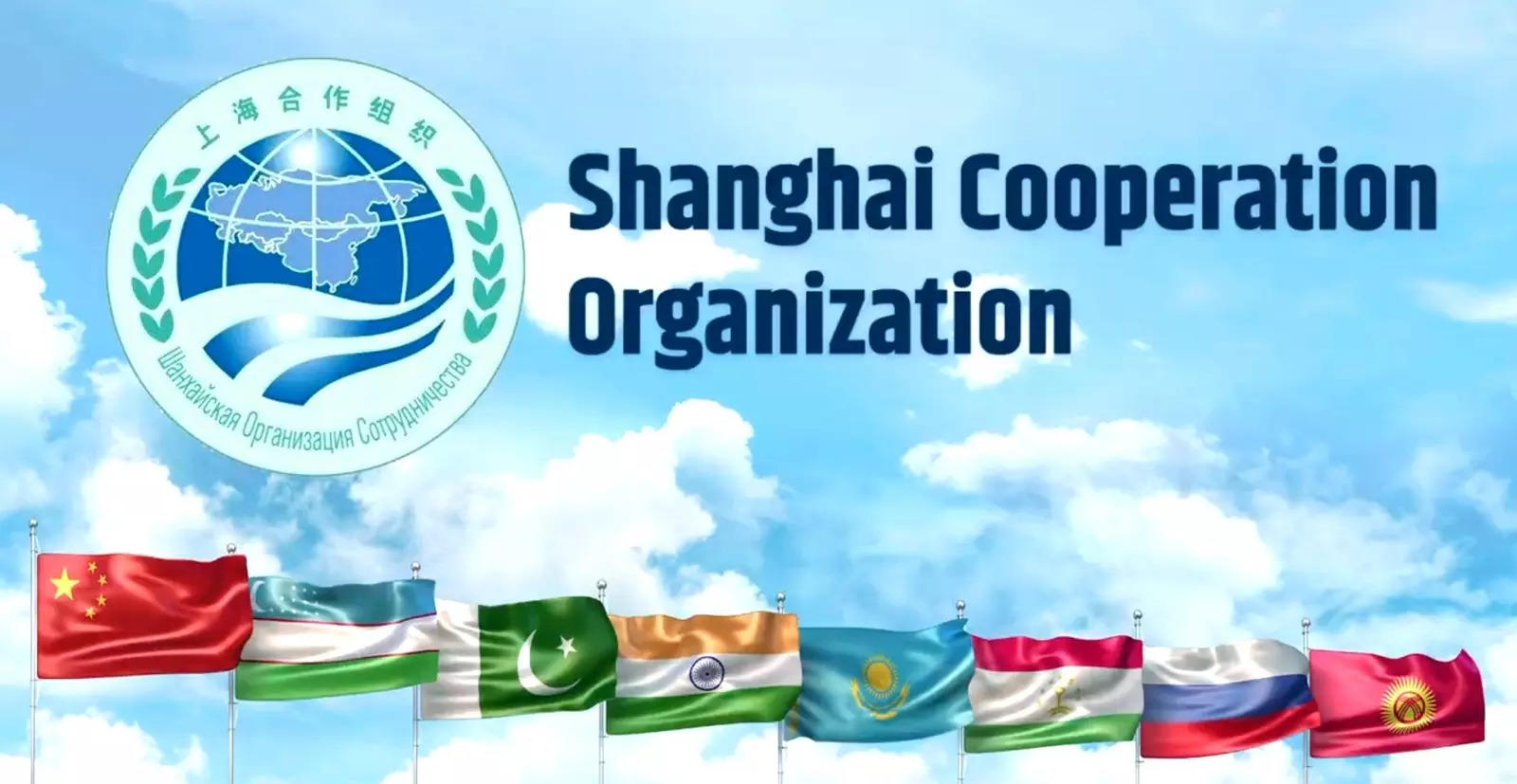India’s Role in the Changing Landscape of Global Cooperation
Context:
India played a pivotal role as the host of the 23rd Meeting of the Council of Heads of State of the Shanghai Cooperation Organization (SCO) that witnessed significant achievements, exemplified by the signing of the New Delhi Declaration and statements on countering radicalization and digital transformation cooperation.
Relevance:
GS – 02 (Regional Groupings) (Important International Institutions)
Prelims:
Members of SCO, RATS, UNESCO World Heritage Sites.
Dimensions of the Article:
- A Changing World
- The Spirit of the SCO
- Enhancing Solidarity and Mutual Trust
- Embracing Win-Win Cooperation
- The Need for Multilateralism
- China’s Commitment
A Changing World:
- The world is currently experiencing unprecedented changes, with geopolitical tensions, economic slowdown, energy crises, food shortages, and the urgent need to address climate change.
- In the face of these challenges, collaboration among nations becomes imperative. The key risks to global peace and development are power politics, economic coercion, technology decoupling, and ideological contest.
- It is crucial for the international community to collectively address these questions: unity or division, peace or conflict, cooperation or confrontation.
The Spirit of the SCO:
- Over the years, the SCO has embraced the vision of becoming a community with a shared future for humanity. Member-states have shown unwavering support for each other’s core interests, fostering collaboration between their national development strategies and regional initiatives.
- The spirit of amicable neighbourliness and friendship has been the driving force behind partnerships built on dialogue and cooperation, rather than confrontation and alliance. As a guardian and contributor to regional peace, stability, and prosperity, the SCO’s achievements reflect the aspirations of all nations for peace, development, and mutually beneficial cooperation. Its leading role paves the way for strengthened unity, increased cooperation, and effective risk management in the new era.
Enhancing Solidarity and Mutual Trust:
- The SCO member-states must stand together to ensure common security. As external elements attempt to orchestrate a new Cold War and bloc confrontation in the region, utmost vigilance and firm rejection are essential.
- Strengthening security cooperation, cracking down on terrorism, separatism, extremism, and transnational crimes, as well as fostering collaboration in digital, biological, and outer space security, are paramount. Political settlements must also be pursued for resolving international and regional hot-spot issues.
Embracing Win-Win Cooperation:
- Protectionism, unilateral sanctions, and decoupling efforts adversely impact global well-being. To combat these challenges, the SCO must foster greater collaboration in trade, investment, technology, climate actions, infrastructure, and people-to-people engagement.
- Collective efforts to scale up local currency settlement between member-states, promote sovereign digital currency cooperation, and establish an SCO development bank are necessary for high-quality and resilient economic growth in the region.
The Need for Multilateralism:
- The SCO should engage with observer states, dialogue partners, and other regional and international organizations, such as the United Nations, to uphold the UN-centered international system and the rule of law. Together, these efforts can promote global peace, drive inclusive development, and safeguard the international order.
China’s Commitment:
- China remains steadfast in its commitment to working with partners, including India and South Africa, to enact the Global Security Initiative, Global Development Initiative, and Global Civilization Initiative.
- Through these actions, China seeks to contribute to world peace, security, and prosperity. Respect for each country’s independent path to development and social system, as well as adherence to the UN Charter’s principles and purpose, are vital for comprehensive and sustainable security.
- Dialogue and diplomacy must be embraced as the primary means to resolve international disputes, addressing challenges in both conventional and non-conventional domains.
Way Forward:
- In forging a united, equal, balanced, and inclusive global development partnership, humanity’s shared values of peace, development, equity, justice, democracy, and freedom should guide the way.
- A resolute stance against hegemony, unilateralism, a Cold War mentality, and bloc confrontation is essential. Illegal unilateral sanctions and long-arm jurisdiction measures must be unequivocally rejected.
- India, China, South Africa, and other SCO member-states must lead by example in safeguarding the development rights and legitimate interests of the developing world.
Conclusion:
The 23rd Meeting of the Council of Heads of State of the Shanghai Cooperation Organization marked a significant milestone in the cooperative efforts of member-states. India’s hosting of the summit facilitated crucial achievements that emphasized the importance of unity, cooperation, and shared prosperity. As the world grapples with various challenges, the SCO’s role in promoting multilateralism, solidarity, and win-win cooperation becomes ever more indispensable. By upholding these values and principles, the SCO can play a vital role in shaping a more stable, prosperous, and equitable global order.





